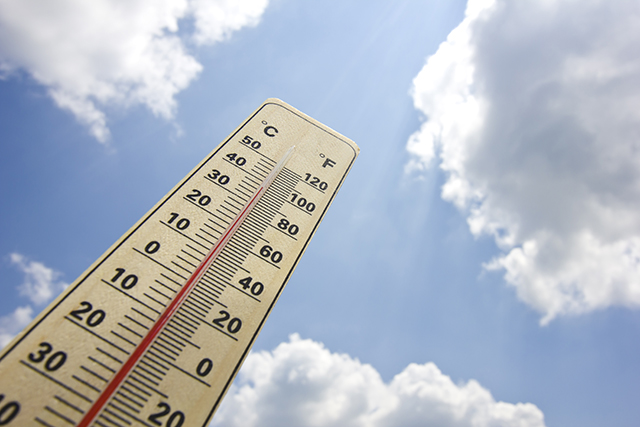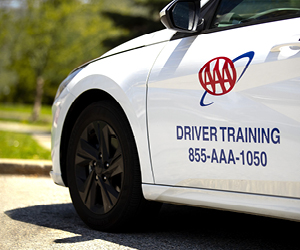As the heat turns up, so does the risk of heatstroke.
Warmer than usual temperatures are to be expected in the Northeast during the summer months, although as a result of climate change, the frequency, duration and intensity of heat waves that we experience every year is only projected to increase, according to the World Health Organization.
When the mercury starts to rise into the 90s and push up into the 100s, it can become dangerous to our health, homes, cars and pets. However, it’s important to start thinking about hot car and extreme heat safety, even if there isn’t a heat wave in the forecast, as even a mild, sunny day, can make the inside of a car lethally hot. Here’s how you can guard against the risks.
Health
Soaring temperatures cause your body to strain to maintain normal conditions, which can quickly lead to organ failure and even death in some cases. Excessive heat is the leading weather-related killer in the United States, according to the National Weather Service.
It is often a combination of high heat and humidity that can lead to illnesses like heat cramps, heat exhaustion and heatstroke. Learn the warning signs of each, and if you experience the symptoms or notice them happening to someone else, act right away. Most importantly, stay cool and stay hydrated.
Populations most prone to heat-induced sickness include the elderly, overweight individuals, infants, children and pregnant women. Outdoor and manual workers are also at higher risk. If you are a business owner with employees that often works in these conditions, such as a contractor, you want to make sure you have the right insurance coverage in place. Schedule a call to speak with a AAA commercial insurance specialist.
Pets, particularly dogs and cats with thick coats and short snouts, can quickly fall victim to heatstroke, as well. Signs include panting or difficulty breathing, drooling, weakness, increased heart rate, lethargy and collapsing. Make sure your pets stay cool and well hydrated, don’t over-exercise them when it’s hot and keep them out of the direct sun.
Protecting Children and Pets From Hot Cars
Heatstroke is the most common non-crash, vehicle-related cause of death in children under the age of 15. Over 20% of deaths result when a caregiver knowingly leaves a child in a car, typically to run a quick errand or let the child finish a nap, according to NoHeatStroke.org.
On a typical 80-degree summer day, the interior temperature of a vehicle increases by 20 degrees in only 10 minutes and reaches a deadly 109 degrees in 20 minutes. On hotter days, the interior temperature can easily reach 120-140 degrees, and cracking the windows has little effect.
And it doesn’t have to be scorching hot outside to get dangerously hot inside a car. Although most hot car deaths occur when temperatures are over 80 degrees, a child has succumbed to vehicular heatstroke in 70-80-degree weather in each of the past ten years.
To prevent hot car deaths, AAA Northeast recommends caregivers practice the following:
- Stop and look at the backseat before exiting a parked vehicle. Make it a habit to check the entire vehicle before locking the doors and walking away. Place personal items, like a purse or briefcase, in the back seat as another reminder to look before you lock. Ask childcare providers to immediately call if your child doesn’t show up for care as expected.
- Lock your vehicle to prevent unsupervised access and a child getting trapped inside. Keep car keys away from children and teach them that the inside of a car should never be used as a play area.
Statistics about pets dying in hot cars are not tracked as closely, but the American Veterinary Medical Association reports that every year, hundreds of pets die of heatstroke in parked vehicles. In most Northeast states, it is illegal to leave a pet unattended in a parked car.
If you see a child or animal confined in a hot car, act fast and do whatever is necessary to get them to safety as quickly as possible. Immediately notify a nearby business so they can make an announcement to find the potential caregiver, call 911 and wait until help arrives.
Cars
AAA stays busy in the summertime, as breakdowns tend to spike on hot days.
Extreme heat can take a toll on cars and can be especially stressful on engines. Check the coolant and make sure that it is periodically flushed and replaced as recommended by the vehicle manufacturer to prevent long-term engine damage and overheating.
Car batteries also hate the heat. Battery fluid evaporates faster in the summer, leading to corrosion. If a car’s battery is more than three years old, it’s a good idea to have it tested by a trained technician. AAA members can request Mobile Battery Service or take their car to any AAA Approved Auto Repair facility to be tested. And while you’re there, have them make sure your tires are inflated to the manufacturer’s specification and the AC is operating at full capacity.
If all precautions fail, you know who to call.
Check out more summer driving safety tips from AAA.
Home
When it gets to be too hot outside, you want your home to be a place of refuge where you can cool down – not a hotbox. To keep the hot air out, Ready.gov recommends weather-stripping windows and doors, installing window air conditioners with insulation, covering windows with drapes or shades, using attic fans and setting up window reflectors such as aluminum foil-covered cardboard to deflect heat outside.
Preparing your home for extreme heat should be part of seasonal maintenance. Aside from making sure your house is as cool and energy-efficient as possible, without proper upkeep, heat can eventually start to take its toll on the structure. In the Northeast, this might include roof damage. Over time, roofing can expand and contract during extreme hikes and dips in temperature, making it susceptible to splits and leaks.
How do you stay cool in extreme heat? Tell us in the comments.
Protect you car, home, small business, pets and more with AAA Insurance.
5 Thoughts on “Dealing With Extreme Heat”
Leave A Comment
Comments are subject to moderation and may or may not be published at the editor’s discretion. Only comments that are relevant to the article and add value to the Your AAA community will be considered. Comments may be edited for clarity and length.

















Pets, too, can become overheated. Make sure they have plenty of water, and keep them in a cool place, and, on extremely hot days, keep your curtains or blinds closed. Keep your air-conditioner and your fan(s) going, as well. If you have to leave your home for any length of time, put your ceiling fans on low, and, if your air conditioner has one, put it on the Economy mode, if you have one, or turn it to low.
Any pet, including exotic birds, can overheat, as well. Have some spray-mist bottles at hand, and spray your exotic birds intermittently, if you have any. For exotic bird owners: Make sure that the temperature in your home (be it a house or apartment) does not go below 60 or above 90-95 degrees Fahrenheit.
I simply stay in the air conditioned apartment. I may venture out after sunset, but “only mad dogs and Englishmen go out in the noonday sun”. And of course, stay hydrated and ease up on the exercise. It’s easy to get overheated.
Your points are good points that are well taken, Coco. Thanks.
Always wear a hat in the sun and stay in shade as much as possible . Awanings on home can also reduce temp indoors , if you have open them early in the day to keep home cooler. Stay hydrated , water is key , don’t wait till you are thirsty to drink water.
Also just turning air conditioner on for 1-2 degrees lower than room temp will cut the humidity so much you can tolerate higher room temps .
I feel it would be wise to do what the Europeans have been doing … use the early morning and evening hours to do their work or business, and lay low during midday when the temps are soaring. Having that time to rest and avoid the heat would be better for our health and our work would be more productive, too.